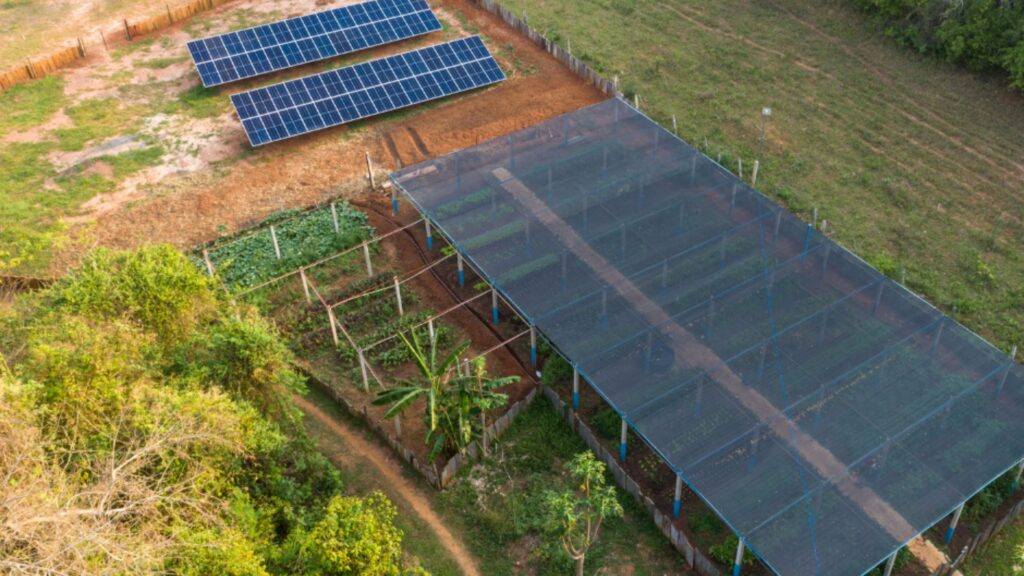In today’s world, businesses are no longer just expected to minimize their environmental impact; they are called upon to actively restore and protect nature. Being nature positive means creating a net-positive impact on ecosystems by integrating practices that not only reduce harm but also support biodiversity, restore habitats, and contribute to global climate goals. As consumer and stakeholder demand for sustainable practices grows, businesses that embrace nature-positive actions can benefit from increased brand loyalty, regulatory compliance, and enhanced reputation. Through the Forest Friends certification program, businesses now have a clear pathway to becoming nature positive, using reforestation, ecosystem restoration, and emissions reduction as core strategies. Understanding Nature Positive and Its Benefits for Businesses What It Means to Be Nature Positive: Becoming nature positive requires moving beyond sustainability to take actions that actively restore and rejuvenate natural ecosystems. For businesses, this involves steps like reducing emissions, offsetting unavoidable carbon, and participating in reforestation or biodiversity projects. Why Businesses Should Embrace Nature Positive Practices: Attract Eco-Conscious Consumers: Today’s consumers prefer brands that align with their environmental values. Meet Regulatory and Market Standards: Growing regulations and standards are encouraging (or requiring) nature-positive practices. Support Long-Term Sustainability: Healthy ecosystems underpin business supply chains, ensuring resources remain available and resilient. Benefits for Your Business: Cost Savings: Efficient use of resources can reduce operational costs. Employee Engagement: A nature-positive mission fosters higher morale and purpose. Customer Loyalty: Nature-positive actions resonate with consumers who care about the environment, increasing brand loyalty. Forest Friends Certification Pathway: Steps to Becoming a Nature-Positive Business Forest Friends’ certification offers a structured path for businesses to transform operations and achieve a nature-positive status through five key steps: Measure and Report Environmental Impact: Getting Started: The journey to becoming nature positive begins with measuring emissions and assessing environmental impact. Forest Friends provides tools to help businesses calculate their carbon footprint and understand areas for improvement. Transparency and Accountability: Detailed reporting with third-party validation builds credibility and demonstrates commitment to stakeholders. Set and Implement Reduction Targets: Sustainable Practices: Set realistic reduction goals across energy, waste, and resource use. Examples include transitioning to renewable energy, optimizing energy efficiency, and sourcing sustainable materials. Reduction Strategies: From energy-efficient systems to mindful procurement practices, these actions help businesses cut down their emissions before moving on to offsetting. Offset Unavoidable Emissions through Reforestation: Offset Through Tree Planting: Forest Friends partners with businesses to offset their emissions by funding tree-planting projects, directly contributing to carbon sequestration and ecosystem restoration. Restoration and Reforestation: Trees not only absorb CO₂ but also support biodiversity, water cycles, and soil health, making them essential in restoring natural landscapes. Choose a Certification Level: Participant, Partner, or Accelerator: Forest Friends offers three levels of certification, each tailored to a business’s level of commitment and resources. As businesses progress, they gain access to tools like stakeholder engagement kits, tree-gifting programs, and entry to Forest Friends’ global events and network. Engage and Inspire Stakeholders: Employee Involvement: Training and activities, such as tree-planting days, foster a culture of environmental responsibility. Customer Communication: Share nature-positive initiatives with customers through regular updates, website badges, and transparent reporting. Practical Examples of Nature-Positive Practices Across Industries Tourism and Hospitality: Eco-Friendly Practices: Hotels can reduce water and energy use, source local foods, and offer nature-positive travel experiences, like eco-tours and tree-planting excursions. Regenerative Tourism: By integrating nature-positive actions, businesses in tourism can create meaningful, low-impact experiences that contribute to ecosystem health. Retail and Product-Based Businesses: Sustainable Packaging: Shift to biodegradable or reusable packaging and minimize single-use plastics. Nature-Positive Customer Programs: Offer incentives such as tree planting for purchases or loyalty points for sustainable product choices. Corporate and Office-Based Businesses: Green Office Practices: Implement waste-reduction programs, use energy-efficient equipment, and reduce single-use items. Offset Corporate Travel: Partner with Forest Friends to offset emissions from business travel by funding reforestation projects. Stakeholder Engagement: How to Build a Nature-Positive Culture Engaging Employees: Employees are crucial advocates for nature-positive practices. Providing training, eco-friendly incentives, and encouraging team volunteer days for tree planting are great ways to build a nature-focused culture within the company. Communicating with Customers: Transparency is key. Update customers on progress, share success stories, and promote your nature-positive certification on social media, website, and packaging. Partnering with Local Communities: Partner with local organizations for projects that support biodiversity, such as protecting local wildlife or restoring native habitats. Measuring and Reporting Impact Setting and Tracking Metrics: Define measurable goals like trees planted, emissions reduced, and habitats restored. Forest Friends provides tools to track and measure impact to ensure progress is being made. Reporting Results to Stakeholders: Share annual sustainability reports or regular updates to keep stakeholders informed and engaged. Highlighting progress shows accountability and commitment. Aligning with Global Goals: Frame your nature-positive actions in alignment with international initiatives like the Kunming-Montreal Biodiversity Framework to restore 30% of ecosystems by 2030, underscoring your global responsibility. Success Stories: Businesses Making a Nature-Positive Impact 1. Inkaterra Hotels: Pioneering Climate-Positive Hospitality Inkaterra Hotels, a renowned Peruvian ecotourism company, has set a global benchmark by becoming the world’s first climate-positive hotel brand. Through meticulous measurement of their CO₂ footprint and the implementation of a comprehensive mitigation plan aiming for a 5% annual reduction by 2030, Inkaterra achieved this remarkable status. Their initiatives include managing Peru’s first land concession for research and ecotourism in the Amazon rainforest, establishing eco-lodges built with native materials, and launching reforestation projects to restore over 5,000 hectares by 2025. These efforts not only conserve biodiversity but also enhance the well-being of local communities, exemplifying how hospitality can harmoniously integrate with environmental stewardship. >Read more 2. Tulu Travel: Advancing Sustainable Tourism Through Collaboration Tulu Travel, a company committed to sustainable tourism, has demonstrated the power of collaboration in ecosystem restoration by planting one tree per customer they plant hundreds on native trees every year. By partnering with Forest Friends, Tulu Travel has streamlined processes and shared resources, effectively enhancing their nature and climate positive action initiatives. This cooperative approach not only fosters innovation but also amplifies the impact of sustainability


